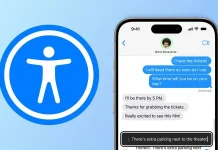
Banks, non-banking finance companies (NBFCs) and micro-financiers analyse the credit scores of individuals to ascertain their creditworthiness and attitude towards repaying debt. Credit reports are vital when it comes to extending fresh credit, transferring existing debt obligations, paying policy premiums, and other arrangements directly or indirectly related to credit facilities.
A bad credit score can effectively reduce your chances of getting a fresh credit line, or can completely abrogate the application as leading scheduled commercial banks as well as NBFCs are not willing to onboard customers with a damaged credit score. We take a look at some of the major side-effects of a bad credit score.
Banks will charge a higher rate on loans, advances
Lenders will certainly charge a higher rate of interest on loans and advances as a customer with a damaged credit score will be treated as a subprime borrower as compared to a customer with a healthy credit score. A higher credit score compellingly showcases the customer’s financial prudence, behaviour towards servicing the debt obligations and the habit of making the repayments on or before due dates.
A higher rate of interest translates into an increased interest amount on the principal taken from the lender and as a result, you can end up paying more as compared to a regular customer with a moderate credit score.
Insurers may ask for higher premiums
Insurance providers will ask for a higher premium if you’ve got a credit score that is less-than-par or well below the predefined threshold fixed by the insurer. There is a likelihood that customers with a low credit score are expected to file more claims before the completion of the maturity period of the policy.
Moreover, subprime borrowers with a damaged credit score ultimately reflect their financial attitude, as they must have skipped or deferred multiple debt obligations or utilised credit way above their earnings capability.
Dream home plans will have to wait
Individuals with a lower credit score face difficulties in getting a big-ticket credit facility such as a home loan, as lenders are reluctant to extend a higher loan amount seeing the misses on your part when it comes to repaying debt.
There can also be instances when you will find it hard in getting a property on rent or lease for personal or commercial use, as a bunch of realtors and third-party real estate intermediaries often check your credit score before closing the deal.
Rigorous inquiries, background checks
This will happen without fail as well-established lenders are highly likely to go the extra mile to ascertain the creditworthiness of individuals with a damaged credit score, irrespective of the credit line you’re applying for.
Even if you’re applying for the most-secured credit facilities, including an auto loan, home loan, loan against gold or loan against securities, the banks will cross-verify every possible detail provided by you to confirm whether the financial institution should take you as an asset on their books or not.
Personal or business loans get difficult
As personal loans and non-collateralised business loans continue to remain unsecured lines of credit, the person with a bad credit score will face challenges.
Banks, micro financiers, specialised credit institutions and new-age digital lenders are quite willing to onboard subprime borrowers up to a certain limit but they can outrightly reject loan applications if the borrower doesn’t show an improvement in credit behaviour.
There can be a situation when the lender or group of lenders may downsize the amount that is yet to be disbursed as institutions can internally decide whether the individual will be able to service the upcoming liabilities or not.
Out of a bunch of people with a damaged credit score, preference will be given to those individuals who have a stable source of income. Steady earnings and multiple sources of income can partly rescue you even if you’ve bad credit score.























